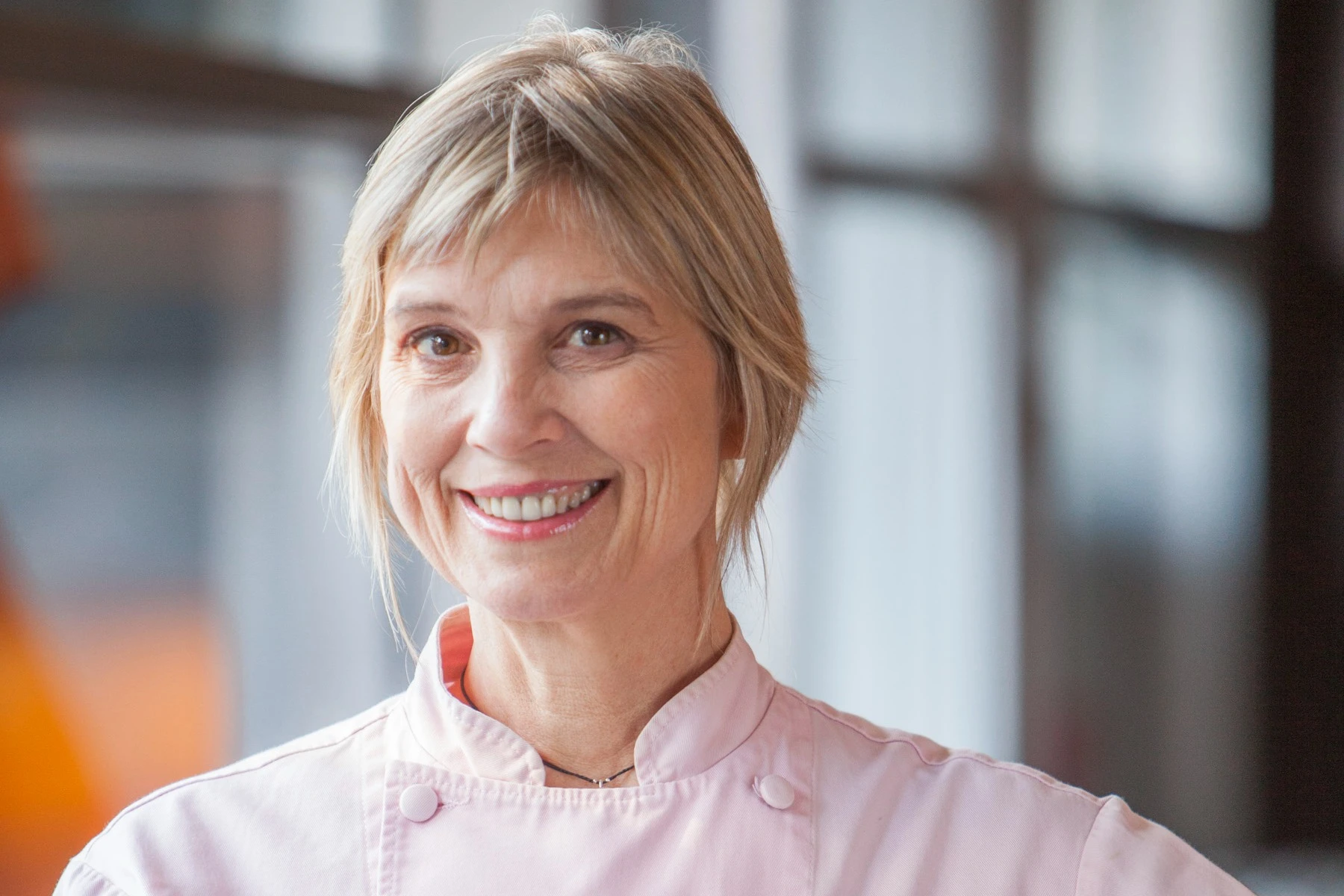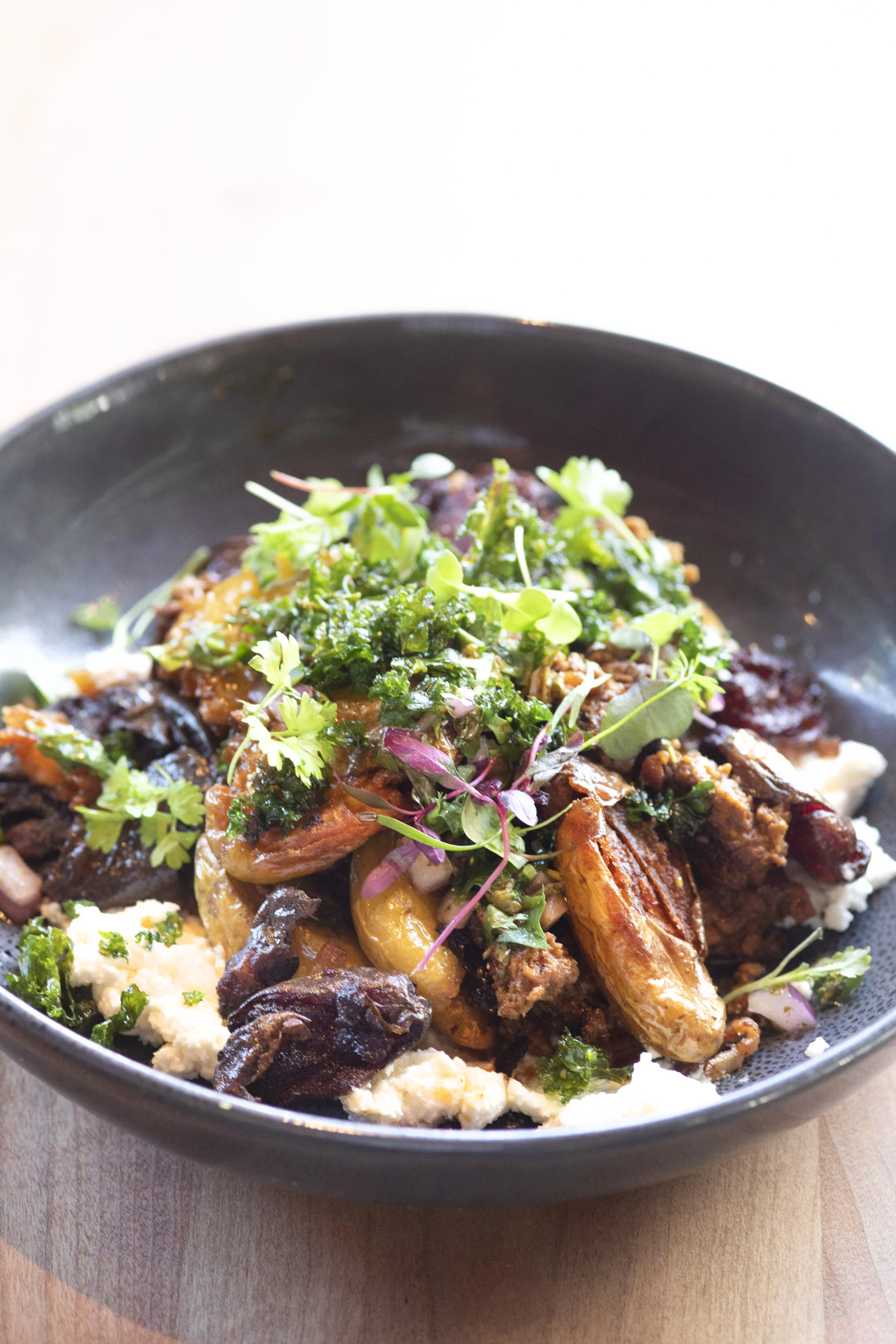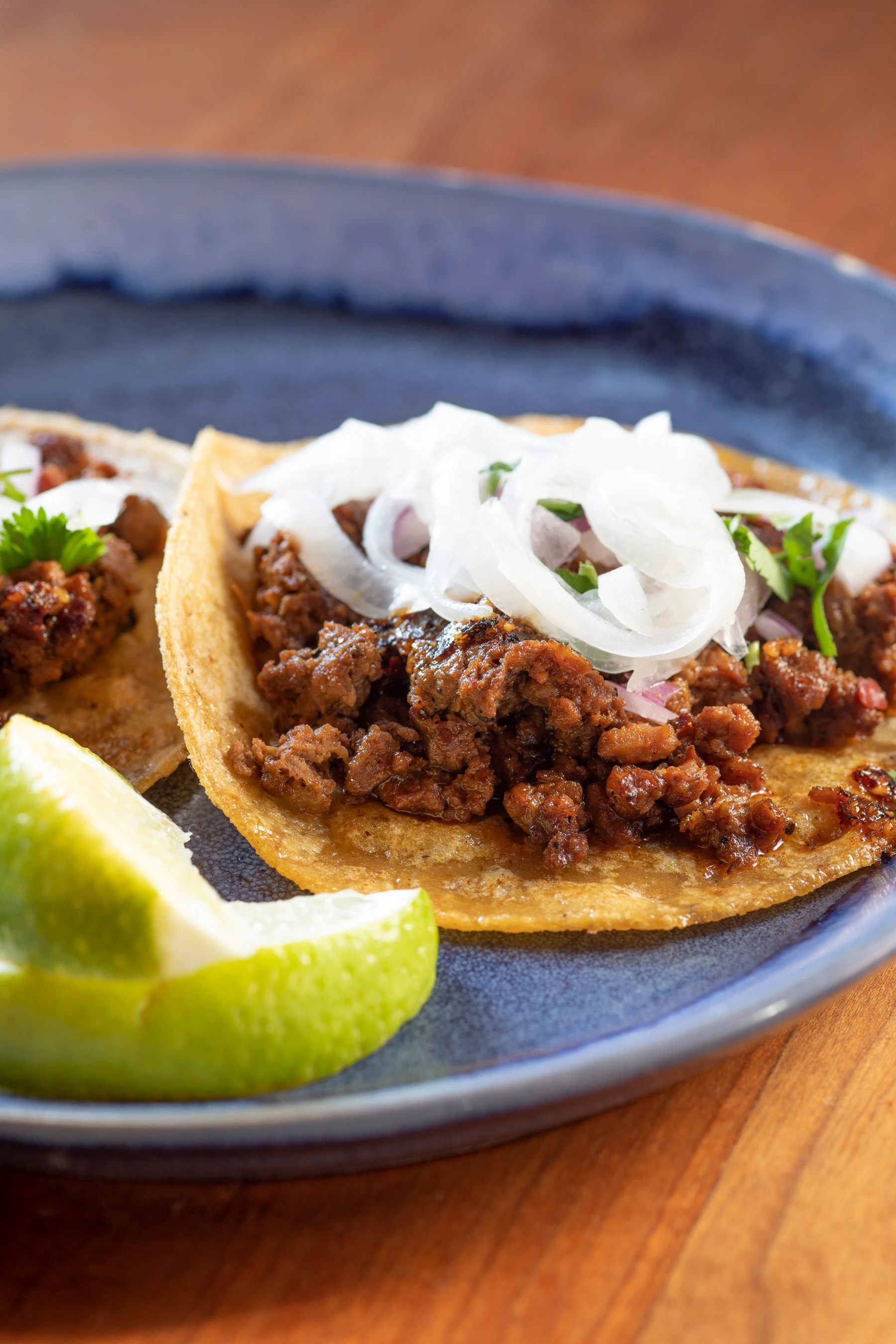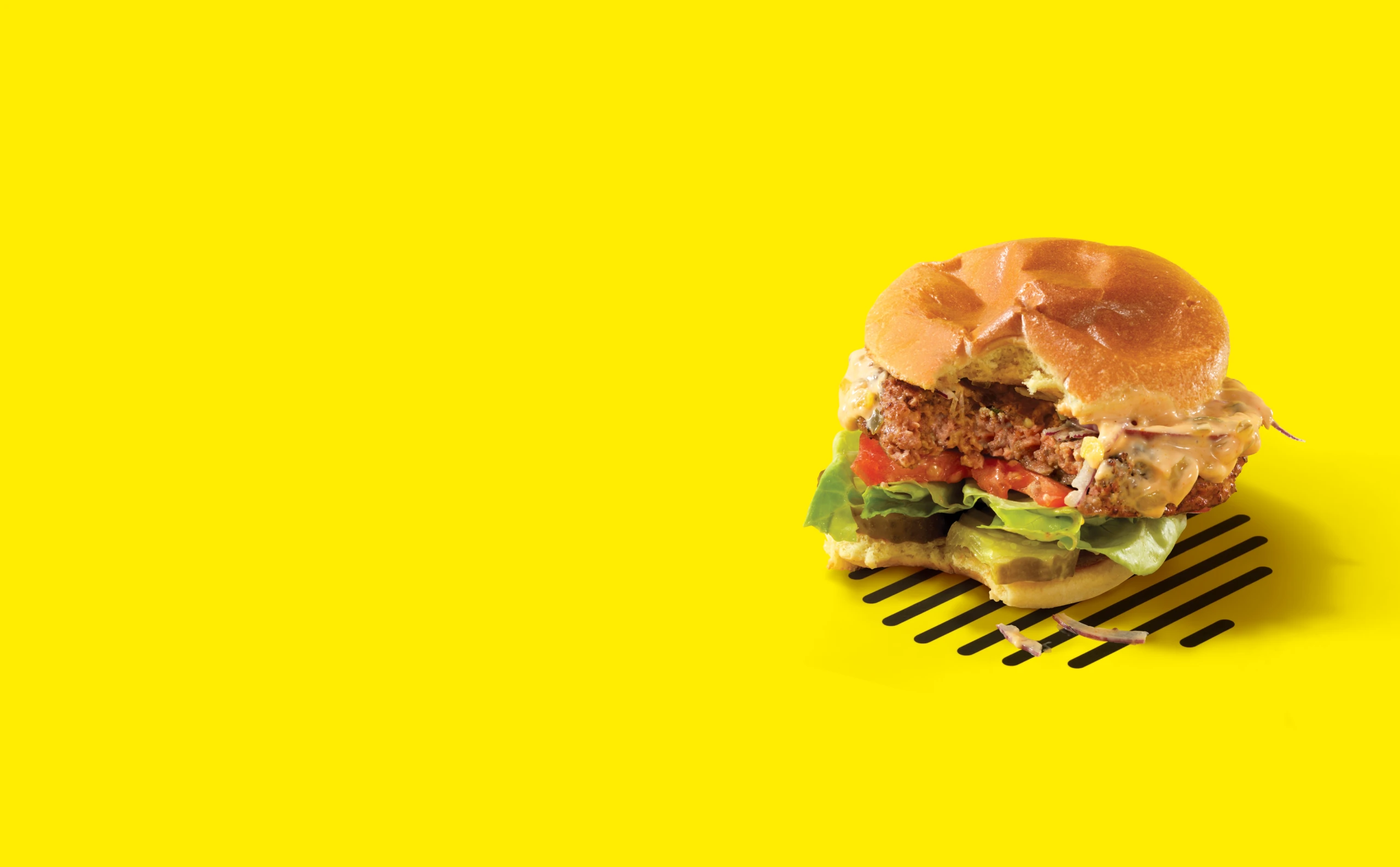(What If?)
MARY SUE MILLIKEN DITCHED THE PATRIARCHY AND IS TEACHING OTHER CHEFS TO DO THE SAME.

In our fourth conversation with inspirational leaders for Women’s History Month, we are highlighting the achievements of Mary Sue Milliken, Executive Chef and Owner of Border Grill restaurant.
In addition to running multiple critically acclaimed restaurants across the country, Mary Sue has authored 5 cookbooks, produced a successful radio show, been featured in ‘Too Hot Tamales’ on the Food Network and Julia Child’s ‘Cooking with Master Chefs’. She is also the recipient of multiple awards, a first runner up in Bravo’s ‘Top Chef Masters’, sits on various boards and is credited with single-handedly changing Los Angeles’ culinary landscape.
Want to learn more about this remarkable woman? Read on.
IF: How did you become an internationally renowned chef and food industry leader?
Mary Sue Milliken: I knew I wanted to be a chef from a young age, so I graduated high school a year early and went to cooking school when I was 17. At that time, I was 1 of only 2 women in a class of 100 aspiring chefs, but that didn’t bother me because I love cooking. It’s what gets me out of bed in the morning, whether I’m feeding my family in lock down or hundreds of people at my restaurants.
When I interviewed for my first professional role, the owner told me I couldn’t work in the kitchen because I would cause chaos for ‘his boys’, so he offered me a role as a hat check girl. I was devastated because that was my dream job, so I fought my way in, sending letters, calling the restaurant daily, until he finally gave me a job peeling garlic for $3.25 an hour. 3 months later, he hired Susan Feniger, who became my eventual business partner. I think he saw how I worked circles around the men and that motivated him to hire more women.
A few years later I ditched the patriarchy and opened my first cafe with Susan. For the last 40 years, we have successfully launched multiple restaurants, authored cookbooks together, appeared on television shows and hosted a radio program. That was the best move I could have made because I didn’t have to answer to anyone and was able to take control of my destiny.

Fingerling potatoes with Impossible™ Chorizo
How have things changed for female chefs since you started?
I always knew the industry was tough. Cooking is hard work that requires long hours and sacrifice, and a lot of people didn’t think I had the endurance required to last. I’ve had to fight my way in, but that was never a problem for me. What has been challenging is the pace at which the industry is moving. I thought 40 years ago that things would be different for women by now, that we would have changed the landscape, but we haven't.
The food system needs to prioritize equity -- there is diversity, but people of color and women aren’t rising to the top. Women represent 50% of students in culinary schools in this country, yet only 6% of all head chef positions.
I was mentored by amazing leaders like Julia Child and Alice Waters, and I’m working hard to support other women, advocating for better pay, living wages and benefits. I want to see cooks, chefs & dishwashers treated like they have a profession, just like lawyers or doctors. The cooking industry is becoming more professional and the pandemic has helped expose some of the unsavory parts. It’s been a tough year, but it’s also been transformative.
How has being a woman played a role in your leadership style?
After I graduated from culinary school, I moved to France and had to adapt to the hierarchical systems in place in their kitchens. In that environment, I learned very quickly how not to manage people. Women approach leadership differently - we tackle problems with a focus on collective success. If we can all succeed, that’s a huge win, as opposed to an individualistic ‘I’m going to get ahead of the next guy’ mentality.
That’s why it’s so important to have women’s voices amplified and our perspectives taken seriously. This doesn’t just apply to the culinary industry, but across all industries. We need to have balance if we want to create a sustainable future for everyone, and women’s voices are part of the answer.
What is your sustainability strategy and what is resonating with consumers?
California is a great place to be because our customers are so open-minded and want to know how the food system affects the broader community. My first touchpoint with sustainability was hearing Meryl Streep talking about pesticides on apples, and that motivated me to get involved in the movement. Then the Monterey Bay Aquarium invited me to exchange ideas with other industry leaders about how seafood purchasing affects the oceans, and that was really eye-opening for me.
After those talks, we radically restructured our menu to champion sustainable seafood. We also created a ‘Good for the Planet, Good for You’ program to let customers know which items are at least 80% plant-based. Customers loved that because it gives them choice and allows them to participate in our sustainability efforts.
How has Impossible Foods helped you achieve your sustainability and business goals?
When I first learned about the Impossible™ Burger, I was so excited because I had tried other products and didn’t like them at all. To a chef, the most important element in an ingredient is the flavor -- you don’t want to have to do much to make something taste good.
Impossible products are so good and don’t require much work to stand out in dishes, just like a great ingredient from the farmers' market. I can create delicious food that hard-core carnivores find irresistible -- that really excites me.
Customers are really happy to see Impossible™ products on the menu and love that they have a choice. We started by offering the Impossible Burger as a substitute for beef in our Chile Relleno burger, and it was so popular that we incorporated it into the menu in many different ways. Now we offer Impossible™ smashed potatoes & cheese, an Impossible™ empanada, Impossible™ albondigas (meatballs)...it’s not just burgers anymore!

Impossible™ Chorizo Taco at Border Grill(opens in a new tab)
How has your background influenced your success?
We didn’t set out to have wildly successful careers, it happened organically because we stayed true to our passion. We joked for the first decade of our careers that we were in the non profit sector because we could barely pay our rent! We were excited about what we did using our voices to make an impact, so we said yes to every opportunity that came our way.
I recently joined RE:Her, an organization in LA working to uplift female restaurant owners and bring more attention to the impact of COVID-19 on their businesses. It’s been so energizing for me to work with young women, and I’ve enjoyed mentoring so much.
What is on the road ahead for you?
The industry was already ailing before the pandemic because we didn't build a solid foundation. I’m excited to help make it stronger and am involved in the Independent Restaurant Coalition(opens in a new tab) lobbying for the Restaurants Act. (opens in a new tab) We can do so much more working together and build a sustainable food system that is better for the planet, our bodies & every worker.
To get inspired by Mary Sue’s cooking, check out her recipe in the Impossible Foods Cookbook.(opens in a new tab)
